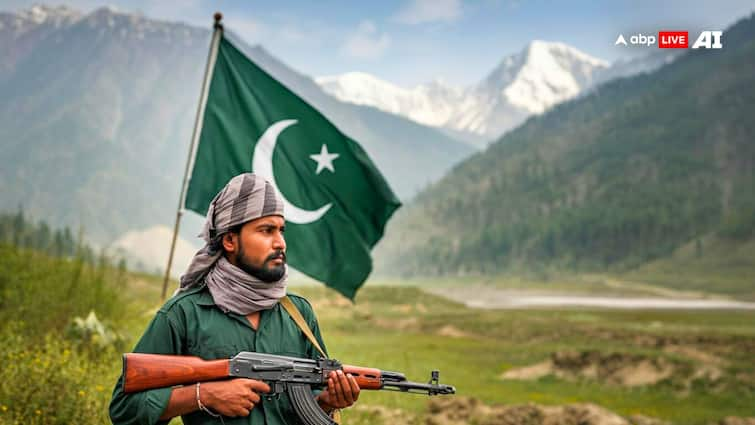Pakistan News: After the Pahalgam terror attack, Pakistan is on target of not only India but many countries of the world. Pakistan’s Defense Minister Khwaja Asif recently admitted that Islamabad has a role in sheltering terrorists and sponsoring terrorist factories on their land. This confession is not only shocking, but it also revealed Pakistan’s ‘shameless’ terrorist conspiracies and terrorist activities, which are not limited to Kashmir, have reached Islamic countries, Middle East and Europe as well.
Pakistan supports terrorist organizations
Pakistan’s Defense Minister openly confessed that the country has a history of supporting terrorist organizations. He said, “We have been doing this dirty work for America including West and Britain for the last three decades.” An important relationship with bloodshed in Pahalgam, Kashmir seems to be connecting with Pakistan. Hashim Moses, who has previously served in the Pakistani Army, was found to be one of the main attackers of the Basaron Valley.
A large -scale search operation is being carried out to catch Moses. He has been a para commando in Pakistan’s special service group and later joined the Lashkar-e-Taiba (LET) to carry out terrorist attacks in India. For many years, Pakistan has been using its land as a launchpad for cross -border terrorism, extremism and extremist ideology. Its track records are the worst in the world in sponsoring, sponsoring terrorism, sheltering and exporting it.
In 2018, former Pakistan Prime Minister Nawaz Sharif also accepted the role of the Pakistani government in the 2008 Mumbai attacks by Lashkar-e-Taiba. Former Pakistani Army General Pervez Musharraf also admitted that his army trained terrorist groups to fight India in Kashmir. How is Pakistan exporting terrorism globally?
Afghanistan Taliban and Haqqani Network attacks
Pak-based terrorist groups were found to be the main conspirators behind several deadly attacks on Afghan citizens, government bases and international forces. These include a bomb blast on the Indian Embassy in Kabul in 2008 and an attack on the US embassy in Kabul in 2011. Pakistan’s ISI (Inter-Services Intelligence) was widely recorded as supporting Afghan Taliban and Haqqani Network, providing them money, training and safe hideouts.
Its role in bombing the Indian Embassy in Kabul is also mentioned by senior journalist Carlota Gal in his book, in which he wrote, “The embassy was not done by any evil ISI agents. It was not done by himself. It was approved and monitored by the most senior officials of the Pakistani intelligence agency.”
Pakistan’s terrorist attacks from Kabul to Iran
Pakistan-based Sunni extremist group Jaish ul-Adal repeatedly attacked the Iranian security forces in Sistan and Balochistan province. In response, Iran carried out missiles and drone attacks in Pakistan’s Balochistan province. Tehran claimed that it targeted Jaish ul-Adal’s bases, Iran has repeatedly accused Pakistan of sheltering Sunni terrorists who have crossed border attacks and fails to take action against them.
In April, the Pakistan link came out in the investigation of the Moscow terror attack. Russian officials identified the mastermind as a Tajik citizen and they are investigating his relations with Pakistan. Reports suggest that the attackers may get logistics or ideological support from the Pakistani network.
United Kingdom 2005 London Bombings
The bomb blast in London on July 7 was carried out by four British Islamic terrorists, three of the attackers – Mohammad Siddiq Khan, Shahzad Tanveer and German Lindsay spent time in Pakistan between 2003 and 2005, where they received training in terrorist training centers. Osama bin Laden’s elimination exposed Pakistan globally:
In 2011, the US killed Al Qaeda leader Osama bin Laden in Abbottabad. This American action is the biggest stain on Pakistan’s face. Bin Laden lived in a campus near the military academy of Pakistan for a year without any identity, which confirmed the protection and alleged collusion of the Government of Pakistan.
Also read –
Pakistan Army gave hollow threat to India, said where to start, you decide, where will it be, we will tell ‘

